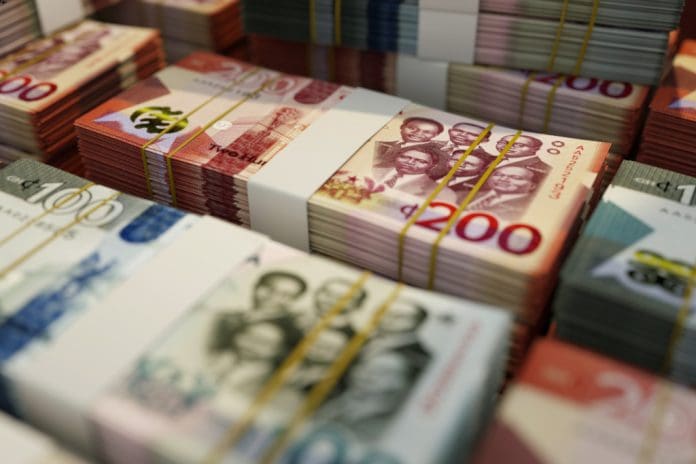Ghana’s recent currency appreciation against the US dollar faces sustainability challenges unless the country urgently strengthens its production base across agriculture, manufacturing and mining sectors, economic analysts warn.
The cedi has weakened 12.87 percent over the past month despite gaining 24 percent over the last 12 months, with the USD/GHS exchange rate rising to 11.8939 on September 1, highlighting volatility concerns that experts say reflect underlying structural weaknesses.
Currency specialists argue that Ghana’s recent cedi strength represents temporary relief rather than sustainable recovery, emphasizing that meaningful exchange rate stability requires robust domestic production capacity rather than central bank interventions.
Economic analysts stress that without immediate investment in real output growth, particularly in agriculture and manufacturing, Ghana risks returning to the currency instability that has characterized recent years. The warnings come as the exchange rate deteriorated from GHS 11.91 per USD at end-2023 to GHS 14.70 by end-2024.
Manufacturing growth reached 3.1 percent in recent quarters while agriculture sectors showed varied performance, but economists argue these levels remain insufficient to support sustained currency stability. Production expansion across key sectors represents the only viable path to reducing import dependence and strengthening foreign exchange reserves.
Gold exports continue anchoring Ghana’s foreign currency earnings, yet over-reliance on mineral commodities exposes the economy to global price volatility. Analysts recommend diversifying into agriculture and value-added manufacturing to create more stable revenue streams.
Food production receives particular emphasis in analyst recommendations, with suggestions for home gardening campaigns and commercial farming support to reduce foreign food import pressure. Ghana’s heavy dependence on imported food supplies contributes significantly to foreign exchange demand.
The manufacturing sector faces persistent challenges from high operational costs and infrastructure limitations, requiring targeted policy interventions and incentives to achieve meaningful expansion. Analysts suggest that properly supported local industry could serve both domestic markets and regional export opportunities.
Bank of Ghana interventions through foreign reserve deployment and dollar injections provide only temporary currency support without addressing fundamental production deficits. Economists warn that such measures cannot substitute for genuine economic transformation.
Inflation remains elevated at projected 20.9 percent in 2024, declining to 11.1 percent in 2025, reflecting ongoing economic pressures that currency appreciation alone cannot resolve. Sustainable price stability requires increased domestic production capacity.
Economic analysts unite in calling for a national productivity drive as Ghana’s economic reset agenda, emphasizing that currency stability must rest on increased production and value creation rather than speculative movements or short-term interventions.
Without urgent reforms and strategic investments channeled into agriculture, manufacturing and mining sectors, Ghana faces potential return to currency depreciation cycles regardless of central bank support measures, analysts conclude.
Source: newsghana.com.gh











